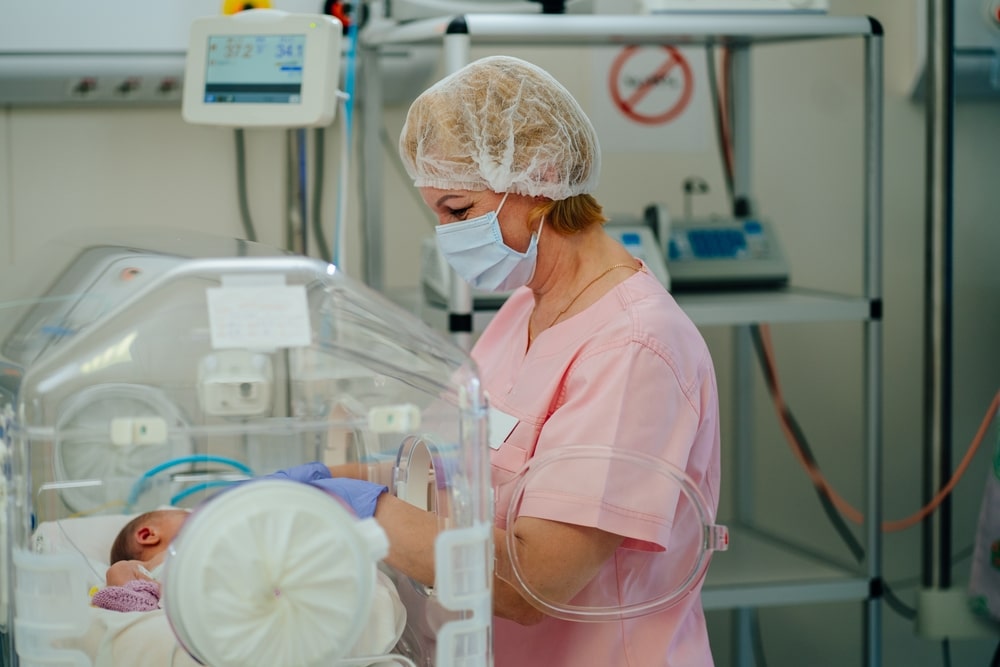The birth of a baby is a challenging but amazing experience that affects the mother’s and infant’s bodies differently. The mother’s body meets all of the baby’s requirements before delivery, including feeding, urination, protection, etc. However, following birth, the baby’s systems must function autonomously. Numerous newborns experience difficulty adjusting and may require intensive care.
The mother’s functions before delivery are crucial for the baby. Breathing, eating, eliminating waste, and having a robust immune system are a few of these. Once a newborn is born, its body systems must adjust. For example:
- The lungs need to take in air.
- Changes in the heart and pulmonary circulation.
- The digestive system has to start digesting food and expelling waste.
- The kidneys must keep the body’s fluid and chemical balance and eliminate waste.
- The liver and immunological systems must begin operating separately.
Your infant’s body systems must alter how they communicate with one another. Sometimes a baby has a hard time adjusting to life outside the womb. Because of congenital disabilities, preterm birth, or traumatic delivery, these modifications could be more challenging. There is a lot of specialized care available at the best hospital for children to help newborn babies.
What is a Neonatal Intensive Care Unit (NICU)?
Newborns that need extensive medical care are typically kept in the neonatal intensive care unit, a specific component of the hospital (NICU). The NICU offers specialized newborn care for children thanks to its state-of-the-art facilities and qualified medical team. Babies who need specialized nursing care but are not as ill may receive care in NICUs. Since some medical centers do not have enough people to staff a NICU, babies must be transferred to another hospital. Intensively cared-for infants fare better when delivered in a setting with a NICU than when they are moved after birth.
Some newborn babies require a neonatal intensive care unit. Having a sick or premature baby might be surprising for any parent. The NICU can be pretty stressful. You can comprehend why a newborn might need NICU care if you read the following material. Additionally, you will be informed at the best hospital for children about some of the procedures that may be necessary for the care of your infant.
Read more:- Newborn Care During COVID-19 Pandemic
The Need for NICU
As was already mentioned, giving birth is a complex process, and several things may go wrong that would impact the baby’s health after birth. The infant is kept under the observation of pediatrician doctors in the NICU to manage such problems. The following are some typical reasons why infants are admitted to the NICU:
Premature Delivery:
Premature births happen much earlier than the anticipated due date (or before 37 weeks of pregnancy). Premature delivery is the leading cause of infants ending up in the neonatal intensive care unit. Infants born prematurely typically do not have the same degree of development as babies born at term, making it difficult for them to adjust to their environment. Preterm babies usually have trouble controlling their body temperature, lose weight quickly, and face other related problems. To provide a stable environment for the babies’ growth, premature infants are placed in an incubator or isolation chamber in a NICU unit.
Infection:
Sepsis or disorder is one of the leading causes of newborn mortality. Preterm newborns are more likely to contract diseases than babies born fully mature. These newborns are admitted to NICU in the best hospital for children for specialized care since they cannot typically fight infections on their own.
Respiratory distress Syndrome (RDS):
Babies are most likely to have RDS because of their young or underdeveloped lungs. Newborns with RDS are treated in the neonatal intensive care unit because it has modern devices like ventilators. By supplying warm air and oxygen to the baby’s lungs, endotracheal tubes that are a component of ventilators support or even carry out breathing on their own.
Hypoglycemia:
NICU care is vital for newborn care with low blood sugar (hypoglycemia). Premature babies, ill babies, and babies whose mothers have gestational diabetes are more prone to go through this.
Maternal Chorioamnionitis:
The placenta, the umbilical cord, or both could develop inflammation and infection before or during labor. This causes harm to the mother, who has a high fever, an accelerated heart rate, etc. The infant is immediately taken to a NICU and given antibiotics because it significantly raises the baby’s risk of infection.
Other:
Other circumstances that could necessitate the baby being admitted to the NICU include low birth weight, difficult delivery, need for specialized care such as blood transfusions, etc.
At Ankura Hospital, we offer the most cutting-edge NICU equipment and skilled pediatrician doctors who can handle even the most complex and severe cases. The National Neonatology Forum has certified our newborn intensive care unit at Degree III, the highest level of severe treatment.
The dedicated staff at the best hospital for children — Ankura never ceases to strive to provide the infant with the best care and treatment.
Read more:- Control & Prevention of Newborn Diseases: Here’s How

